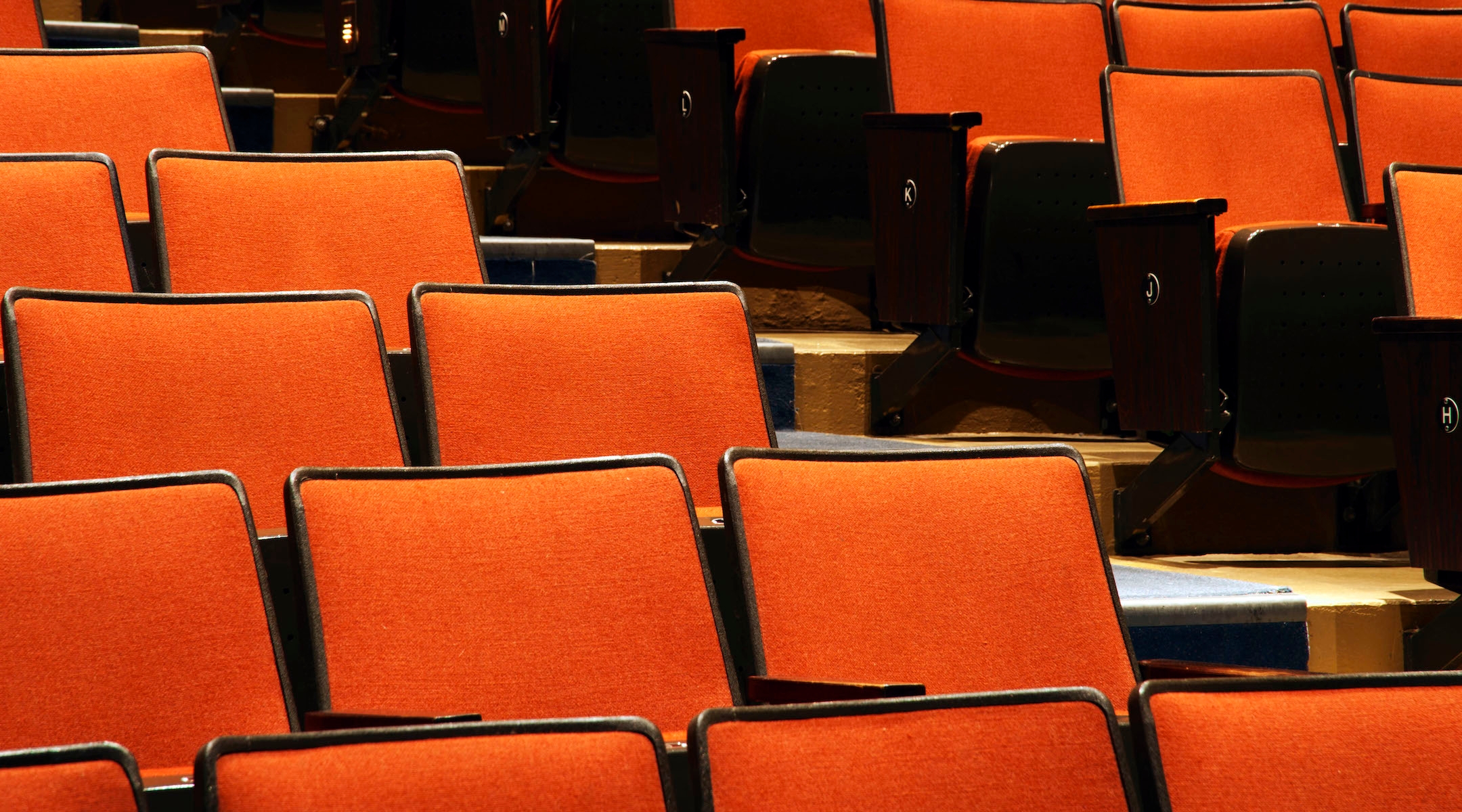(JTA) — A Canadian movie theater said it was postponing a Jewish film festival, over the objections of the local Jewish federation, owing to “security and safety concerns at this particularly sensitive time.”
The Playhouse Cinema in Hamilton, Ontario said in a Tuesday statement that it decided over the weekend to postpone the Hamilton Jewish Film Festival, which it had been slated to host in April. The theater said it did so “after receiving numerous security and safety related emails, phone calls, and social media messages.”
The theater’s statement, posted to social media, did not provide details on the nature of the safety concerns, and the theater did not respond to requests for comment as of press time.
But the statement came as the arts world has been roiled by protest over the Israel-Hamas war. One of the films to be screened, “The Boy,” is a short film about life on the Israel-Gaza border and was directed by Yahav Winner, who was murdered in the Oct. 7 Hamas attack that launched the war.
A spokesperson for the Hamilton Jewish Federation, which had been partnering with the theater on the festival, told the Jewish Telegraphic Agency it was “deeply dismayed” by the decision, which it said the theater made on its own.
“This decision, made in response to a few complaints and threatening emails objecting to our festival’s lineup, including films from Israel, is profoundly disappointing,” the federation said in its statement. “We believe this action represents a missed opportunity to engage the Greater Hamilton community in a meaningful cultural event, particularly in the wake of the alarming rise of antisemitism in recent times.”
The federation added that the move to postpone the festival “was not mutual and was made solely by the Playhouse Cinema.” It also said that “there were no specific threats or incidents that warranted the cancellation of the festival.”
The federation said it would still host the festival “later this spring” in its own facility, without the theater’s involvement.
While the theater’s statement did not mention the war, it comes as debate over the fighting has spread across the world of arts and culture. Jewish spaces and cultural institutions headed by Jews are increasingly feeling heat from a rise in pro-Palestinian activism and antisemitic attitudes, and Jewish performers and authors have had their events canceled. Events featuring Palestinian artists or pro-Palestinian viewpoints have likewise been canceled.
The protests have impacted film festivals in Europe as well as North America. Last month, an Israeli film festival in Barcelona was forced to change venues due to a harassment campaign. In November, an Israeli-American director-actress was disinvited from a Stockholm film festival.
Canada has also seen tensions around the war. In recent months two Canadian theaters canceled planned stage productions of a play about an Israeli medical rescuer, and a university student union in British Columbia came close to voting on a measure calling for an end to an area Hillel’s campus presence. In February, an International Women’s Day event to be held in Ontario disinvited a Canadian cyclist due to criticism of her past service in Israel’s military. That event was later canceled altogether.
This week the Canadian parliament came close to voting on a measure that would have recognized Palestine as a state, until the demand was removed at the last minute. Canadian Jewish groups still criticized the motion’s passage, which included non-binding calls for a ceasefire, continued funding of a United Nations refugee aid group whose employees had ties to Hamas and a ban on Canadian weapon sales to Israel.
Deborah Lyons, Canada’s special envoy for preserving Holocaust remembrance and combating antisemitism, said on Wednesday that the postponement of the Hamilton festival was “reminiscent of 1930s Germany when hateful anti-Jewish propaganda and exclusion of Jews in business and culture led to the slaughter of 6M European Jews as the majority of its citizens stayed silent.”
In addition to “The Boy,” the festival’s scheduled offerings had included “Women in Sink,” a short film about a hair salon in Haifa’s Christian Arab community, and “The Man in the Basement,” a modern French drama about Holocaust denial.
In its statement, the theater affirmed a general commitment to diversity, saying, “The Playhouse Cinema’s mission is to be a welcome home to a variety of cultural groups, serving the Hamilton area through our film programming, and in offering our venue for rentals.” Among the theater’s current offerings is the Holocaust drama “One Life.”
Jews on social media criticized the theater’s decision to postpone the festival.
“If the Playhouse Cinema was shocked at receiving threats for hosting a Jewish event, just wait until they hear what it’s like to actually be a Jew in Canada,” Joe Roberts, chair of the progressive Zionist group Meretz Canada, wrote on X, formerly Twitter.
“Every time we cancel something Jewish because of ‘security and safety concerns’ we are empowering those who use threats and intimidation and terror,” Brian Dijkema, the president of the Hamilton-based nonpartisan Canadian think-tank Cardus, posted on the platform. Dijkema is not Jewish but denotes his name on X with three parentheses, an Internet convention that typically signifies Jews reclaiming a symbol white supremacists used to denote Jewish people.
Correction (3/22/24): An earlier version of this article mistakenly identified Brian Dijkema as Jewish. He is not.
JTA has documented Jewish history in real-time for over a century. Keep our journalism strong by joining us in supporting independent, award-winning reporting.






